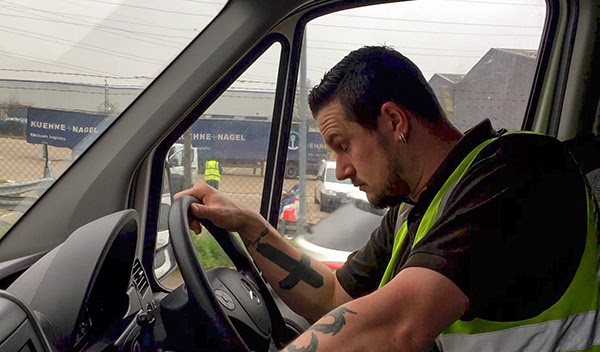One in six drivers has fallen asleep at the wheel, according to a new SmartWitness survey. A further 42 per cent of motorists have admitted driving while they felt drowsy and were in danger of nodding off.
 Almost half of those surveyed (47 per cent) said they had been a danger to themselves or other road users as a result of tired driving at some point since passing their test.
Almost half of those surveyed (47 per cent) said they had been a danger to themselves or other road users as a result of tired driving at some point since passing their test.
The problem is worse among men than women.
Just 10 per cent of women have fallen asleep while driving compared to almost a quarter of men (24 per cent).
The vast majority of drivers (89 per cent) say they drive when they know they are tired because they have to for work or for their home life.
Only 48 per cent of drivers always stop and take a break when they are tired – heeding Government warnings.
The most popular way to combat tiredness behind the wheel while still driving is to open the car window (used by 48 per cent of drivers), followed by having a coffee (37 per cent), chewing gum (24 per cent), turning up the radio (16 per cent) turning the car heater to cold (12 per cent).
SmartWitness has devised a new system that recognises that the driver’s eyes are not on the road and sends out alerts to wake him up. The DDC100 unit is about 8cm long by 7cm tall and sits on the dashboard, and can be fitted to cars, van or HGVs. It uses facial recognition software to detect when the driver’s eyes have looked away from the road for more than three seconds. When this happens it sends out an audible alert and when connected to a fleet management system it will also send an alert to the fleet manager that the driver is suffering from fatigue. The DDC100 also recognises when the driver is using a mobile phone at the wheel and is distracted for other reasons whilst driving.
The results are from a new survey of 1,000 motorists from SmartWitness, the UK’s leading vehicle CCTV firm, which found that 17 per cent of drivers had fallen asleep at the wheel.
It found that 47 per cent of respondents were not getting the recommended 7-8 hours sleep a night.
And 85 per cent of those polled said they experienced at least one bad night’s sleep a week on average. On at least half those days when they slept badly (52 per cent), they were also driving a vehicle.
Business drivers are particular susceptible to these dangers due to hectic schedules and increasingly long working hours.
It is estimated that driver fatigue is a contributory factor in as many as one in five driver deaths every year.
Furthermore, tiredness-related collisions are three times more likely to be fatal or result in serious injury because of the high impact speed and lack of avoiding action.
SmartWitness chief executive Paul Singh said: “Driver fatigue is one of the biggest killers on our roads and we need to be doing far more to raise awareness of this major threat to road safety.
“Increase pressure on delivery schedules due to the internet has put more pressure on drivers to carrying on driving when drowsy and at risk of nodding off. This is as dangerous to other road users as drink driving or talking on your mobile phone.
“It is vital that employers recognise this problem and implement new technology to spot when their staff are too tired to drive, and alerts for the drivers so that they know themselves.
As well as the DDC100 unit, SmartWitness operates a new SmartGuard system for fleet clients where all their drivers are monitored by a professional call centre in real-time to pick up on problems such as fatigue, and deal with them before they cause a serious incident.
All drivers in a SmartGuard monitored fleet are monitored by a number of telematics indicators picking up on issues such abrupt braking and tailgating, and now the driver distraction unit give further insight into driver safety.
It allows fleet managers to quickly pinpoint any problem drivers and adjust training accordingly.


.gif?rand=1545)










